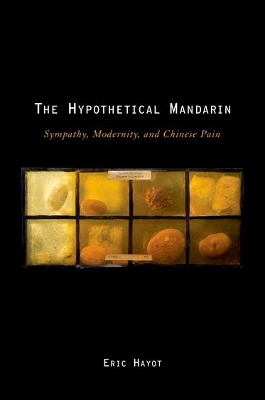The Hypothetical Mandarin begins with two simple questions: Why has the West for so long and in so many different ways expressed the idea that the Chinese have a special relationship to cruelty and to physical pain? And what can the history of that idea and its expressions teach us about the politics of the West's contemporary relation to China, and, more broadly, about the historical development of the universal subject of modernity? Insofar as it responds
to those questions, the book is a history of the Western imagination. But it is also a history of the interactions between Enlightenment philosophy, the explosion in international commerce that dates from the eighteenth century and goes by the name of "globalization," theories of human rights, and the history
of the idea of modernity. Beginning with Bianchon and Rastignac's discussion of whether the latter would, if he could, obtain a European fortune by killing a Chinese mandarin in Balzac's Le Pere Goriot (1835), the book traces a series of literary and historical examples in which Chinese life and European sympathy seem to hang in one another's balance. The representational and historical apparatus that produces these examples has organized the West's explicit relation to China and
served as a crucial mode of expression for the West's most fundamental values. Through readings of novels, medical case studies, travelers' reports, photographs, and paintings, the book shows that in the West the connection between sympathy and humanity, and indeed between sympathy and reality, has tended to
refract with a remarkable frequency through the lens called "China." Western responses to Chinese pain go to the heart of the relationship between language and the body, the social and philosophical experience of modernity, and the definition of a universal human subject. This analysis opens new possibilities for thinking the West's relationship to China, past and present, and concludes by showing how four terms-sympathy, suffering, economic exchange, and representational exchange-establish the
network that frames the historical discourse on China, sympathy, and modernity, and continue to shape the economic and human experience of the present.
- ISBN10 0195382498
- ISBN13 9780195382495
- Publish Date 30 April 2009 (first published 1 January 2009)
- Publish Status Active
- Publish Country US
- Imprint Oxford University Press Inc
- Format Paperback
- Pages 296
- Language English
